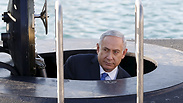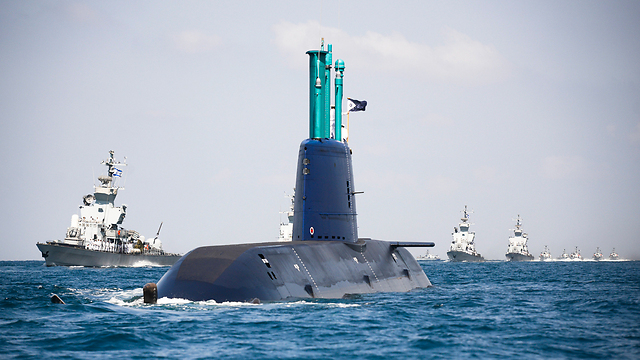
Evidence ThyssenKrupp bribed Israeli officials
German newspaper exposes that ThyssenKrupp ship builders paid bribes to high-ranking Israeli officials to receive contract to build submarines for the Israeli Navy.
New evidence unearthed by German newspaper Handelsblatt indicates that senior Israeli military and government officials received illegal payments from the German company that has supplied all six of the IDF’s submarines.
According to the expose, Israel is one of three countries to whom ThyssenKrupp paid bribes to senior officials in order to win contacts to build surface vessels and submarines for their navies.
The other two countries are Greece and South Africa.
There is an ongoing police investigation into PM Netanyahu’s involvement in this affair. Last week former Defense Minister Moshe Ya’alon gave detailed evidence to the police. Following his evidence, the police announced that the preliminary investigation of this affair, called Case 3000 by the police, will turn into another full-blown investigation against the prime minister.
This investigation is now likely to be broadened and include allegations that several senior IDF officers and defense ministry officials also received payments from the German company.
According to a Channel 2 report, Ya’alon told police that Netanyahu was personally involved in attempts to bypass the defense ministry’s normal purchase requirements, including the publication of tenders to relevant companies.
“He managed the negotiations himself, over the heads of the pertinent ministry officials,” he said.
The affair broke several weeks ago, following an expose on David Shimron’s involvement in negotiations with ThyssenKrup, the German conglomerate that owns the shipyards that builds the submarines.
Shimron is Netanyahu’s long time personal lawyer, and was deeply involved in the negotiations to purchase three new submarines. He reportedly gave the German company an ultimatum that if they wanted to complete the deal, they must replace their long time representative in Israel, and appoint Michael (Miki) Ganor, a close personal friend of Shimron and Netanyahu as their representative in Israel.
The decision to purchase three new submarines now was controversial. The Navy opposed the idea, saying it currently has no need to acquire additional submarines, as all its six submarines are operational, and will only be at risk of becoming obsolete around 2025.
The Navy’s recommendation was to begin the process in 2020 to ensure that any new subs would include the latest technologies. Despite this, Netanyahu insisted negotiations with ThyssenKrupp continue.
Israel currently has six advanced German submarines that are capable of launching nuclear armed missiles, according to foreign media sources. The German government has paid for two of them, Israel for the rest.
Germany is not expected to foot the bill for any new submarines, and the Defense Ministry wanted to issue a tender to ensure a fair and competitive process. France, which also manufactures comparable submarines, had expressed an interest in responding to any tender the Defense Ministry issued.
The ministry hoped competition between the French and German shipyards would reduce the price of any new submarines, but Netanyahu overrode them, and acted to ensure ThyssenKrupp won the contract without having to go through a tender process.
Article reprinted with permission from TPS











